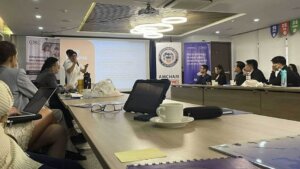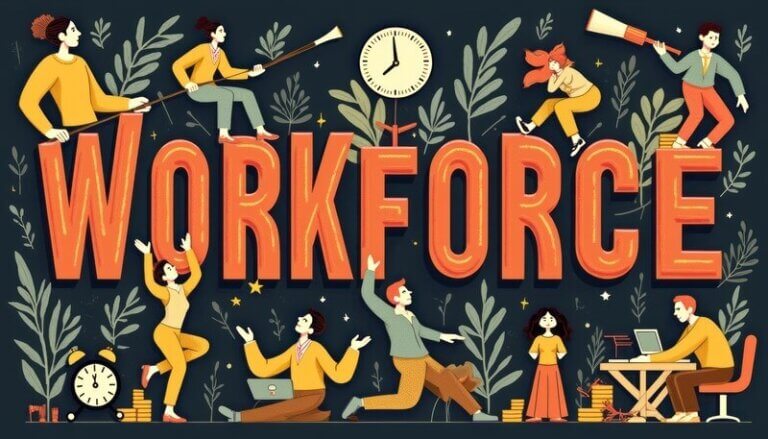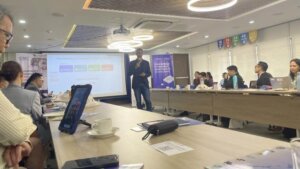In today’s rapidly evolving business landscape, organizations must adopt strategies that not only keep pace with change but also prepare their workforce for the future. Future-proofing talent is no longer an option—it is a necessity for sustainable growth. This became even more evident when I attended the American Chamber of Commerce of the Philippines learning session, “Built to Scale: Equipping Talent with Future-Proof Skills, Automation, and Tools for Sustainable Growth,” on February 20, 2025. The discussions highlighted how equipping employees with essential skills, leveraging automation, and implementing the right tools can help companies build a workforce that is agile, adaptable, and ready for the challenges ahead.
The Need for Future-Proof Talent Development
The world of work is undergoing a transformation driven by technological advancements, shifting market demands, and evolving consumer behaviors. Companies that fail to invest in their people risk falling behind, unable to adapt to new business realities. Future-proofing talent means proactively developing skills that remain relevant, ensuring employees can thrive in any business climate.
One of the key drivers of this change is automation. While automation replaces repetitive and low-value tasks, it also creates new opportunities for employees to engage in more strategic and creative work. Businesses must focus on upskilling and reskilling initiatives that prepare workers to work alongside automation rather than be replaced by it.

Essential Skills for a Future-Proof Workforce
To stay competitive, organizations must identify and cultivate the skills that will be most valuable in the future workplace. These skills can be categorized into three key areas: technical proficiency, soft skills, and adaptability.
- Technical Proficiency – As businesses integrate more digital tools and automation, employees must be adept at using technology. Proficiency in data analytics, artificial intelligence, and cloud computing is increasingly becoming a standard requirement across industries.
- Soft Skills – While technical expertise is important, human-centric skills such as critical thinking, communication, collaboration, and emotional intelligence are irreplaceable. These skills enable employees to work effectively in teams and solve complex problems.
- Adaptability and Continuous Learning – The ability to learn and adapt quickly is crucial in an ever-changing business environment. Companies should foster a culture of continuous learning, encouraging employees to embrace new ideas and technologies.
Leveraging Automation for Workforce Efficiency
Automation is revolutionizing the workplace, allowing organizations to streamline operations and improve productivity. However, automation should be viewed as an enabler rather than a threat. When implemented effectively, it enhances efficiency while empowering employees to focus on higher-value tasks, such as strategic decision-making and customer engagement. By balancing automation with human skills, companies can create a more engaged and innovative workforce.
To harness the full potential of automation, businesses can:
- Identify repetitive tasks that can be automated to improve efficiency and reduce human error.
- Provide training programs to help employees understand and work with automated systems.
- Encourage innovation by allowing employees to focus on creative problem-solving and strategic initiatives.
Equipping Employees with the Right Tools
Investing in the right tools is just as important as developing skills and leveraging automation. Modern workplaces require digital solutions that facilitate collaboration, improve efficiency, and enhance decision-making. By integrating the right tools into their workflows, companies can create a more agile and productive workforce, better prepared for future challenges.
Some of the most valuable tools for a future-ready workforce include:
- Collaboration Platforms – Tools like Slack, Microsoft Teams, and Zoom help teams work seamlessly across different locations and time zones.
- Learning Management Systems (LMS) – Platforms such as Coursera, LinkedIn Learning, and Udemy provide employees with access to continuous learning opportunities.
- Project Management Tools – Applications like Asana, Trello, and Monday.com help teams stay organized and track progress efficiently.
- AI-Powered Analytics – Leveraging AI-driven insights enables businesses to make data-backed decisions that drive growth.
Creating a Sustainable Talent Development Strategy
To successfully future-proof talent, organizations must take a strategic approach to talent development. This involves:
- Assessing Skill Gaps – Conduct regular assessments to identify areas where employees need upskilling or reskilling.
- Personalizing Learning Paths – Offer customized learning experiences that cater to individual career growth and company needs.
- Fostering a Learning Culture – Encourage employees to pursue continuous education and professional development.
- Encouraging Cross-Functional Collaboration – Promote collaboration between departments to foster innovation and skill-sharing.
Building a Future-Ready Workforce
Future-proofing talent is a critical investment for any organization looking to achieve long-term success. By focusing on skill development, embracing automation, and equipping employees with the right tools, businesses can build a workforce that is not only resilient but also capable of driving sustainable growth. As industries continue to evolve, the companies that prioritize talent development will be the ones best positioned to lead the way into the future.
Future-Proof Your Workforce with John Clements Consultants
At John Clements Consultants, we help businesses future-proof their workforce through tailored talent development programs, upskilling initiatives, and strategic workforce solutions. Talk to us today to learn how we can support your organization in building a resilient and future-ready team.






